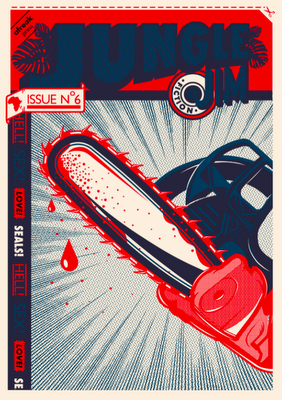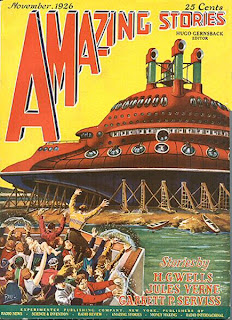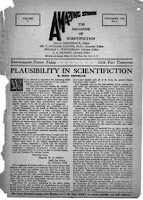This is my fourth post for the great 2012 Caine Prize blogathon. (See my first post for some details.)
With 2 stories remaining for our Caine Prize Blogathon of Wonder, I fell behind.
Thus, this post will be about the last two stories, "La Salle de Départ" by Melissa Tandiwe Myambo and "Hunter Emmanuel" by Constance Myburgh.
Both are solid stories with their own virtues and are, much to the jurors' credit, utterly different from each other.
"La Salle de Départ" tells the tale of a sister who has remained at home while her brother was sent to school in America; he returns home for a visit having become relatively successful in the States, engaged to an Egyptian woman who is a liberal Muslim and a scholar, and unable to relate to his own family anymore. It's true, in this story, that you can't go home again. The cultural and economic divides are nicely delineated, and this is a generally well-written story, carefully structured and balanced, a story with clear themes and unresolved tensions and psychological probing and sociological gesturing, a story that, of course, has an unresolved, dying-fall sort of ending. It's what I think of as a safe workshop story — a story that demonstrates plenty of talent and sensitivity and gives everybody around the table something to comment on and admire. It's also the sort of story that flatters its readers: we can feel good about our own sensitivities after reading it, because we have sided with the good character, we have identified the tensions, we have appreciated the dilemmas, we have nodded our head at the seriousness of it all, and we have felt the proper emotions.
And as you can probably tell from my tone, it's not a type of story I have much interest in. It's worth reading, it's even perhaps worth nominating for an award, but I just struggle to muster a lot of enthusiasm for a story that is so determined to be good for me.
"Hunter Emmanuel", on the other hand, is not a story that wants to be good for anybody. It is a deliberately pulpy tale, originally published in Jungle Jim, "a bimonthly, African pulp fiction magazine" or "genre-based writing from all over Africa." The story is certainly pulpy and hardboiled, but not in a nostalgic or posturing way. The genre feels utterly appropriate for the setting and events. Rewriting the story in a different idiom would rob it of all its meaning.
It's a story that begins with a severed leg in a tree. Hunter Emmanuel is not a fairy tale character (which I assumed when I first saw the title), but an out-of-luck former police officer who has become a lumberjack. He finds the leg, and can't help but start an investigation on his own. What he finds surprises him. He's fine at getting to what happened, but he's not very good at understanding other people's motivations and desires.
The world of the story is dark and grimy, but there's a dream-world underneath it all, or at least underneath Hunter Emmanuel's perception of it all. A wonderful lyric passage in the middle of the story begins:
That night Hunter Emmanuel dreamt of corridors and mermaids, of seal women. Trees that stretched on and on, up and up, trunks wider than ten men's arms could reach around. Solid pine. It was no good. He'd spent enough nights similarly to know he couldn't sleep like this.Unable to sleep, he goes out into the world, dragging h









Who is the good character in Le Salle de Depart? I didn't think it was, ultimately, that cut and dried.
It seemed to me that our sympathies were clearly supposed to be with Fatima. We spend the first half of the story in Fatima's POV, and during that time Ibou seems insufferable; once we switch to his POV, we get a sense of how he thinks and can sympathize a little bit with his situation, but not nearly as much as, it seems to me, we're encouraged to sympathize with Fatima, and then the story ends with Fatima. It may be that there's no clear solution to the question of whether the son should have been taken to the U.S. by Ibou, but he still seems pretty self-centered and obnoxious during the story, and Fatima is pretty much entirely pitiable: the daughter passed over for opportunity in favor of the son, the mother struggling to raise her child, etc.
Right. That is a fair summary; but even if Ibou's point of view comes in late, it isn't short-shrifted. We're given a vivid picture of his loneliness and isolation in the USA; we also see that the way families expect their children to succeed, not for their own sake, but as conduits to prosperity and opportunity for the whole family may be as questionable a social arrangement as the self-oriented Westernised young-adult lifestyle Ibou has gained access to.
At the very least, the story opens the possibility of more interpretations and discussions than might be obvious at first. I'm glad to see that this is true of all the stories on the list, even Stanley Kenani's, which seemed the most one-dimensional to me at first.